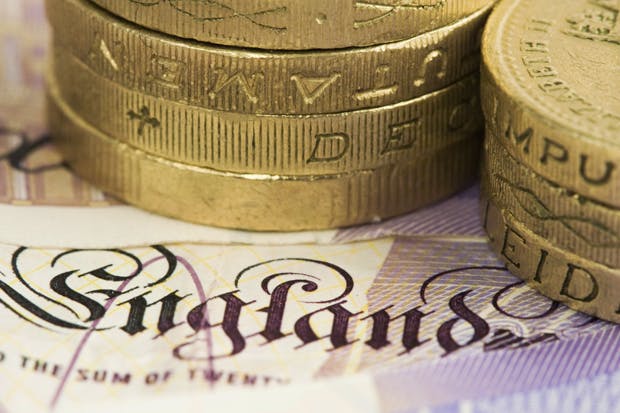For all Gordon Brown’s economic mistakes, he at least tried to build confidence in the British economy. In the build-up to the European Union referendum, David Cameron and George Osborne did the opposite. Osborne, as Chancellor, ignored the good news, accentuated the bad and tried to portray Britain as an economic weakling propped up by EU membership. He was joined by a great many investment banks who produced analyses saying that Britain’s life outside the EU would be catastrophic.
Since the referendum, these anticipations of doom have continued. It is rather strange to watch. Encouraging economic news — the increase in high-street spending, the buoyant demand for jobs through recruitment agencies — is brushed aside. But the surveys about sentiment, which are more negative, are being seized upon as proof of the Remain side being right all along. The Brexit vote might have passed, but the debate goes on: its advocates looking for signs of optimism, and its opponents muttering about ‘hard Brexit’ and almost willing economic collapse.
It’s hard to read into what few economic indicators we have seen since the Brexit vote. A trend is already discernible, however. When businesses are rung up by pollsters and asked about their confidence, they profess to being more miserable than at any point since the last recession. Yet when it comes to doing business, their customers so far seem unaffected. People are shopping, hiring, borrowing and creating wealth just as they were before. The Bank of England’s assessment of business activity in the month since the referendum reports ‘business as usual’, with firms hiring, borrowing and investing as normal.
Much has been made, too, of the Manufacturing Purchasing Managers’ Index, which measures hard data such as sales and orders and which this month fell to 49.1. Anything below 50 indicates a contracting economy. But the fall was less than many had predicted, and the index has falsely suggested slowdowns in the past. It spent most of 2012 below 50, yet a recession did not follow. Nor is the index wholly negative — it suggests a sharp rise in exports over the past month, which must be the early fruits of the drop in sterling.
There were fears that growth would grind to a halt ahead of the referendum, as fear of the unknown stopped firms investing. But as we know now, growth accelerated.
It would be strange if business confidence did not wobble after the unexpected vote for to leave the EU. For most of this year, businesses have been told by everyone — from the Chancellor of the Exchequer to the Confederation of British Industry — that Brexit would mean immediate disaster. It’s since emerged that Mr Osborne banned the Treasury from making any preparations for Brexit — presumably because, if such plans leaked, they might contradict the gloom predicted by his campaign. That added to the atmosphere of uncertainty after 23 June. David Cameron resigned, and for ten days after Brexit, Britain seemed to lack leadership.
Businessmen who surveyed the chaos might have had good cause to feel gloomy. But then they would go back to their businesses and see that the fundamentals had not changed.
Interest rates remain at the lowest level in 400 years, employment is at a historic high, inflation is benign and export markets are as every bit as open as they were at the beginning of June. As you’d expect: we won’t leave the EU for at least two years, so why should trade suddenly contract now? Indeed, a falling pound sucks in investment — as we saw when Japan’s Softbank bid £24 billion for ARM, the Cambridge-based silicon chip manufacturer. WellsFargo, the US bank, has decided to spend £300 million on a new European headquarters in London. It had planned to lease the office, but after Brexit agreed to buy.
Far from retreating into isolation, the UK economy now looks more open than ever. It is gradually dawning on all but the most stubborn in the Remain camp that the world still wants to do business with an independent UK — and that, freed from having to tag along with EU trade deals, this country is now able to negotiate mutually favourable arrangements with fast-growing economies such as India and China. Meanwhile, the EU’s problems continue. Standard and Poor’s, one of the world’s top credit ratings agencies, warned recently that the EU is ‘unsustainable in its current form’.
This is precisely the concern that persuaded 52 per cent of Brits that our long-term future is best served outside the EU. Nobody doubted that economic turbulence would follow, but the case for optimism far outweighs the case for pessimism. Brexit is neither an economic drag nor a stimulus: it is simply the removal of a constraint. What Britain now goes on to achieve depends entirely on the vision and ambition of those in power. Politicians and businesses should snap out of their sulk, and see Brexit for what it is: the greatest opportunity ever handed to a government by an electorate.
Got something to add? Join the discussion and comment below.
Get 10 issues for just $10
Subscribe to The Spectator Australia today for the next 10 magazine issues, plus full online access, for just $10.














Comments
Don't miss out
Join the conversation with other Spectator Australia readers. Subscribe to leave a comment.
SUBSCRIBEAlready a subscriber? Log in